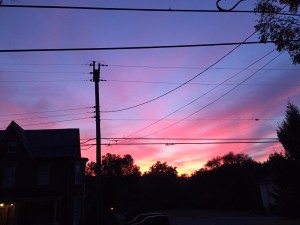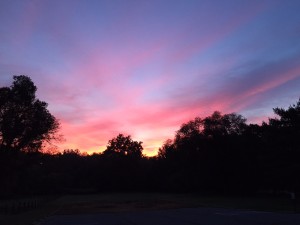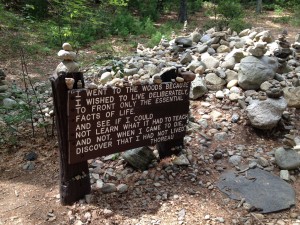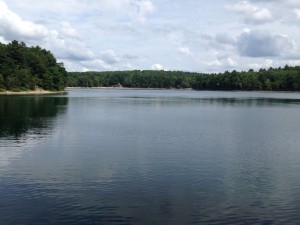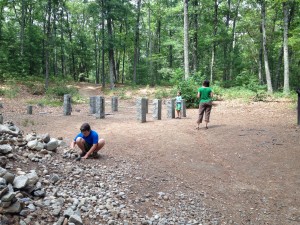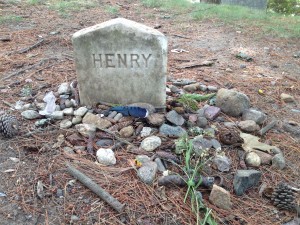“This, then, is the central paradox: wilderness embodies a dualistic vision in which the human is entirely outside the natural. If we allow ourselves to believe that nature, to be true, must also be wild, then our very presence in nature represents its fall. The place where we are is the place where nature is not” (Cronon, 80-81).
Cronon believes that man is a part from nature rather part of nature, which opposes many other environmental writers and public opinions. People like to think nature may coexist with humans, but Cronon says the exact opposite, such that nature is exactly where humans are not. He seems to pose the idea that nature cannot truly exist with humans around.
“In our most trivial walks, we are constantly, though unconsciously, steering like pilots by certain well-known beacons and headlands, and if we go beyond our usual course we still carry in our minds the bearing of some neighboring cape; and not till we are completely lost, or turned round, – for a man needs only to be turned round once with his eyes shut in this world to be lost, – do we appreciate the vastness and strangeness of Nature. Every man has to learn the points of compass again as often as he awakes, whether from sleep or any abstraction. Not till we are lost, in other words, not till we have lost the world, do we begin to find ourselves, and realize where we are and the infinite extent of our relations” (Thoreau, 186-187).
Thoreau addresses the notion of being truly awake and aware of one’s surroundings in this passage. He suggests that getting lost in the woods is a necessity in discovering one’s self. Although it will require some reorienting, one may then truly understand one’s place and the interconnections of nature.

